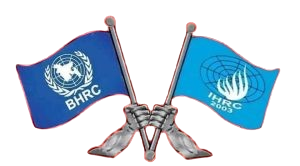IHRC GENEVA PROJECTS INSPECTION PANEL FOR PRO-POOR EMPOWERMENT
The Projects Inspection Panel (PIP) assessment on Rural Development is done to rate how effectively the leadership is utilizing the available resources and how the leadership has been deploying the resources on priority areas such as infrastructure development, job creation and provision of adequate security, good governance and war against corruption. The role of the leaders in rural development policies aimed at providing guidance and direction for rural development is therefore at the core of the IHRC Geneva’s projects inspection.


The IHRC’s vision is that the human rights component in providing operational social objectives, principle and framework for setting goals and targets as well as ease decision making in rural development is a centric consideration in projects execution.
Projects that are in line with global best practices and requirements in rural development as well as accommodate new developments and realities in rural development are rated very high during the projects inspection.
The projects vision must demonstrate that the leader is determined and competent in addressing the challenges at the grassroots. The PIP assessment done to a national or a domestic State is therefore a benchmark mechanism to get information about the ideas the Government has designed and built which can raise the peoples living standards such as numerous electricity projects, rural roads, primary health centres and other infrastructure to rural communities.
The IHRC instituted the annual PIP certificate (Platinum PIP Achievement Award Winner) to recognize an outstanding leader who deserves to be decorated with it. This is in addition to pinning the Nelson Mandela Long Walk to Freedom Medal on the winner. The selection process is done after conducting inspection on projects whose contracts have been budgeted for and awarded. In some of the Countries and Regional zones or States, the exercise revealed a lot of wrongdoings concerning how the contracts were carried out resulting in the people not benefiting from the projects. However, some of the Countries, Regional zones and State Governments have projects in health, education and infrastructure projects that were scored very high and recognised as beneficial to the people. These States were urged to assiduously remain focused on executing projects for the benefit of the people they represent.
The IHRC PIP strategies also include educating the people in the communities on the need for them to know that these projects are funded by public money raised from taxes paid by citizens and from other sources of government revenue. The IHRC therefore creates awareness for the community people to develop structures that can monitor level of work done and report the cases of poor quality work, abandoned work or no work at all especially where it is confirmed that the money goes into private pockets or where equipment is purchased for public projects but are diverted to private use, or even where money is spent on projects and equipment but they are left to rot and dilapidate. Hence, the IHRC wants community people to take more interest in these projects.
The IHRC also encourages that projects should be conceived and developed only when it is attested to be in the category of pro-poor empowerment projects. Projects such as the distribution of motorbikes and sewing machines including palliatives such bags of rice and other food stuffs are difficult to track for transparency and accountability and are often used to divert public funds. The IHRC therefore, canvasses that such projects should be discouraged or closely monitored.

